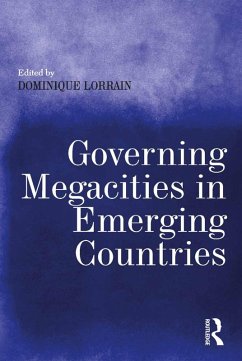This book focuses on the material city and its institutions and shows that, without recourse to a big new theory, urban leaders have devised mechanisms of ordinary government. They have done so through the resolution of practical and essential problems: providing electricity, drinking water, sanitation, transportation. In the originality of its hypotheses and the precision of the analyses carried out in the four case study cities of Shanghai, Mumbai, Cape Town and Santiago de Chile, this work is addressed to all those interested in the life of cities: politicians, local and central government officials, executives in urban companies, researchers and students.
Dieser Download kann aus rechtlichen Gründen nur mit Rechnungsadresse in A, B, BG, CY, CZ, D, DK, EW, E, FIN, F, GR, HR, H, IRL, I, LT, L, LR, M, NL, PL, P, R, S, SLO, SK ausgeliefert werden.

